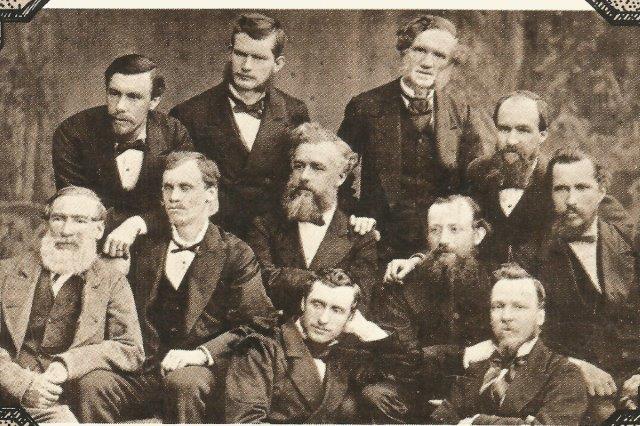Statement of Doctrine
The following extract from our Constitution will give you an idea of what we at Mowbray Baptist Church believe to be the basic teaching of the Bible.
1. The Holy Scriptures: We believe that the Bible, composed of the Old and New Testaments in their original writings, is inspired by God and is of supreme and final authority in faith and life. We believe in the supernatural as the vital element in the revelation and operation of the Christian Faith. (II Tim. 3:16-17; II Pet. 1:20-21; Matt. 5:18; John 16:12-13).
2. The Godhead: We believe in one God eternally existing in three persons – Father, Son and Holy Spirit. (Deut. 6:4; II Cor. 13:14).
3. The Person and Work of Christ: We believe that Jesus Christ was begotten of the Holy Spirit and born of the Virgin Mary, and that He is true God and true Man, and is the only Mediator between God and man. We believe in the vicarious death of the Lord Jesus Christ for our sins, in the resurrection of His body, His ascension into Heaven, and His personal, visible return to earth; and that salvation is received only through personal faith in His shed blood. (John 1:1-2, 14; Luke 1:35; Rom. 3:24-25, 4:25; I Peter 1:3-5).
4. The Personality of the Holy Spirit: We believe in the personality of the Holy Spirit and that His ministry is to reveal Christ to men in the regeneration and sanctification of their souls. (Rom. 8:9; 1 Cor. 12:12-14; Eph. 1:13-14).
5. The Total Depravity of Man: We believe that man was created in the image of God, but that he sinned and thereby incurred spiritual death. (Gen. 1:26-17; Rom. 3:22-23, 5:12; Eph. 2:12).
6. The Eternal State: We believe that there is a radical and essential difference between the righteous and the wicked; that only such as through faith are justified in the name of the Lord Jesus Christ, and sanctified by the Spirit of our God, are truly righteous in His esteem; while all such as continue in impenitence and unbelief are in His sight wicked and under the curse; that this distinction holds among men both in life and after death, in the everlasting felicity of the saved and the everlasting conscious suffering of the lost. (Luke 16:19-26, 23:43; II Cor 5:8; Phil. 1:23; II Thess. 1:7-9; Jude verses 6 and 7; Rev. 20:11-15).
7. Church Ordinances: We believe that baptism is the immersion of a believer in water in the name of the Father, and of the Son, and of the Holy Spirit; setting forth the essential facts in redemption – the death and resurrection of Christ, also the essential facts in the experience of the believer – death to sin and resurrection to newness of life. We believe that the observance of the Lord’s Supper is a commemoration of His death until He comes and is to be celebrated at certain intervals; all members should endeavour to attend regularly. (Matt. 28:19-20; I Cor. 11:23-28).
8. The Responsibility of Believers: We believe that a New Testament Church is a body of believers thus baptised, associated for worship, service, the spread of the Gospel, and the gathering out of the Church from all the world. (Rom. 12:1-2, 14:13; II Cor. 6:14, &:1; Acts 1:8; I Cor. 16:2).
9. Marriage: We believe that God has ordained the only form of marriage as a heterosexual relationship between a natural man and a natural woman who are lawfully married to each other. (Gen. 1:27-28, 2:18-24).
